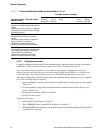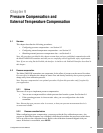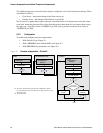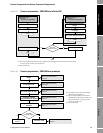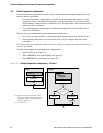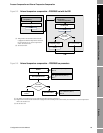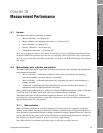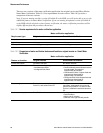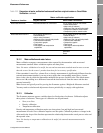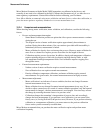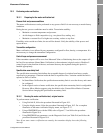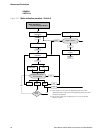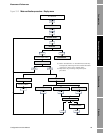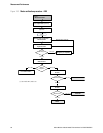
Configuration and Use Manual 87
Measurement Performance DefaultsTroubleshootingCompensation
Chapter 10
Measurement Performance
10.1 Overview
This chapter describes the following procedures:
• Meter verification – see Section 10.3
• Meter validation and adjusting meter factors – see Section 10.4
• Zero calibration – see Section 10.5
• Density calibration – see Section 10.6
• Temperature calibration – see Section 10.7
Note: All procedures provided in this chapter assume that you have established communication with
the Model 2400S DP transmitter and that you are complying with all applicable safety requirements.
Note: If you are using Pocket ProLink, the interface is similar to the ProLink II interface described in
this chapter.
10.2 Meter validation, meter verification, and calibration
The Model 2400S transmitter supports the following procedures for the evaluation and adjustment of
measurement performance:
• Meter verification – establishing confidence in the sensor’s performance by analyzing
secondary variables associated with flow and density
• Meter validation – confirming performance by comparing the sensor’s measurements to a
primary standard
• Calibration – establishing the relationship between a process variable (flow, density, or
temperature) and the signal produced by the sensor
Meter validation and calibration are available on all Model 2400S DP transmitters. Meter verification
is available only if the meter verification option was ordered with the transmitter.
These three procedures are discussed and compared in Sections 10.2.1 through 10.2.4. Before
performing any of these procedures, review these sections to ensure that you will be performing the
appropriate procedure for your purposes.
10.2.1 Meter verification
Meter verification evaluates the structural integrity of the sensor tubes by comparing current tube
stiffness to the stiffness measured at the factory. Stiffness is defined as the load per unit deflection, or
force divided by displacement. Because a change in structural integrity changes the sensor’s response
to mass and density, this value can be used as an indicator of measurement performance. Changes in
tube stiffness are typically caused by erosion, corrosion, or tube damage.
Note: Micro Motion recommends performing meter verification at regular intervals.



